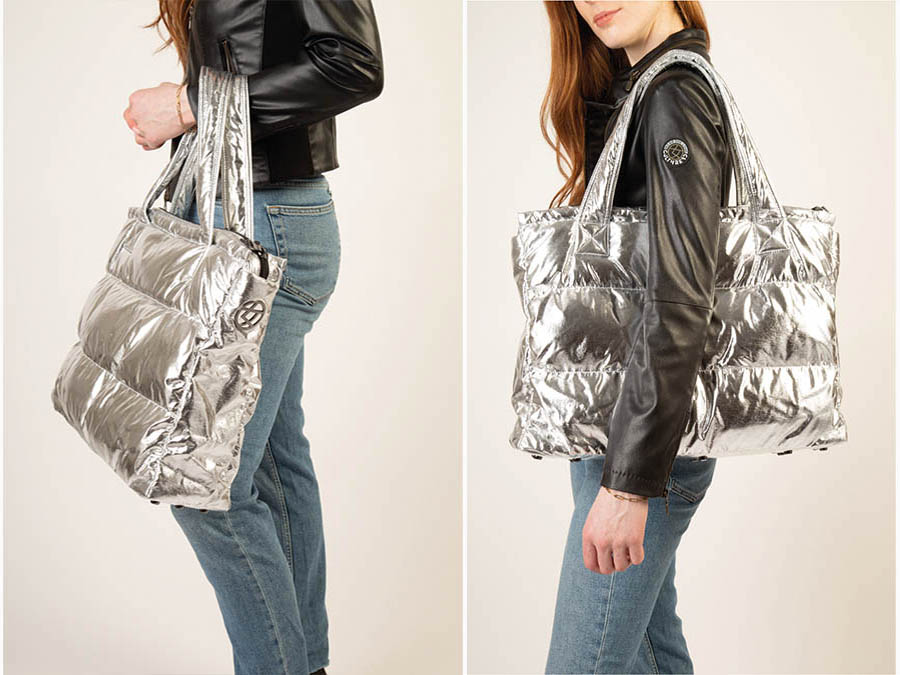The Benefits of Recycled Nylon
Recycle nylon is an ever increasing material found in upcycled clothing today. The benefits it has on the environment and fashion industry is huge.
Here at Sustainablefashion.ie, we explain all you need to know about recycled nylon. More so it’s amazing contribution to the sustainable fashion indus
What is Recycled Nylon?
Recycled nylon, often referred to as rPET (recycled polyethylene terephthalate) in the context of textiles, is a sustainable and environmentally friendly alternative to traditional nylon.
Nylon is a synthetic polymer that is commonly used in the production of fabrics, including clothing, carpets, and industrial materials.
Recycled nylon is made by collecting and processing post-consumer or post-industrial nylon waste, such as old fishing nets, fabric scraps, and industrial plastic waste.
The collected nylon waste is cleaned, sorted, and then broken down into its original polymer form.
This polymer can then be used to create new nylon fibers or other nylon-based products.
The production of recycled nylon has several environmental benefits compared to virgin nylon production.
It reduces the demand for new raw materials, conserves energy, and minimizes the environmental impact associated with the extraction and processing of fossil fuels, which are used in the production of traditional nylon.
Recycled nylon is commonly used in the textile industry to create sustainable and eco-friendly fashion clothing, swimwear, activewear, and other fabric-based products.
The use of recycled materials helps to promote a circular economy and reduce the environmental footprint of the textile industry.
How Recycle Nylon Benefits the Environment
Recycled nylon, also known as regenerated nylon, is gaining popularity in the fashion industry due to its environmental and sustainability benefits. Here are some key advantages of using recycled nylon in fashion.
1. Reduction of Environmental Impact
- Resource Conservation: Recycled nylon is made from post-consumer waste, such as discarded fishing nets, fabric scraps, and industrial plastic waste. Using recycled materials helps reduce the demand for new resources and minimizes the environmental impact associated with extracting raw materials.
- Energy Savings: The production of recycled nylon typically requires less energy compared to virgin nylon production, contributing to lower greenhouse gas emissions.
2. Waste Reduction
Diverting Waste from Landfills and Oceans: By repurposing discarded materials like fishing nets, recycled nylon helps divert waste from landfills and oceans. This contributes to efforts to address the global issue of plastic pollution in water bodies.
3. Lower Carbon Footprint
- Reduced Emissions: The manufacturing process for recycled nylon generally results in lower greenhouse gas emissions compared to the production of virgin nylon. This helps fashion brands and consumers reduce their overall carbon footprint.
4. Closed-Loop Systems
- Circular Economy: Recycled nylon can be part of a circular economy where materials are recycled and reused in a closed-loop system. This approach reduces the need for continuous extraction of new resources and promotes a more sustainable and circular production cycle.
5. Quality and Performance
- Comparable Quality: Recycled nylon can offer similar quality and performance characteristics as virgin nylon. Advances in technology have allowed for the development of high-quality recycled materials that meet or exceed the standards of traditional materials.
6. Consumer Appeal
- Ethical and Sustainable Consumer Choice: As consumers become more environmentally conscious, there is an increasing demand for sustainable and ethical fashion choices. Using recycled materials, including nylon, can enhance a brand’s image and appeal to consumers who prioritize eco-friendly products.
7. Industry Innovation
- Encouraging Innovation: The adoption of recycled nylon in the fashion industry encourages innovation and research into sustainable materials and production methods. This can lead to further advancements in eco-friendly practices within the industry.
8. Regulatory Compliance
- Meeting Environmental Standards: Using recycled materials aligns with various environmental regulations and standards, helping fashion brands demonstrate their commitment to sustainability and responsible business practices.
And Finally
In summary, recycled nylon in fashion offers a range of environmental, social, and economic benefits.
This makes it a compelling choice for brands and consumers aiming to reduce the environmental impact of their clothing choices.






